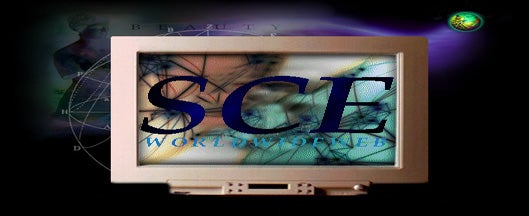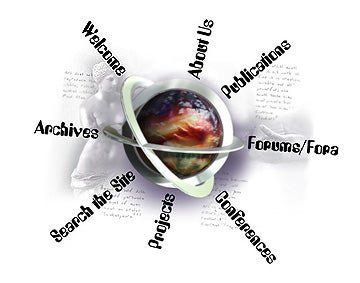

New Economic Criticism The Society for Critical Exchange sponsored a mini-conference on the New Economic Criticism at the 1996 Midwest Modern Language Association convention in Minneapolis. Three sessions were held on Friday, Nov. 8, 1996, beginning at 8:30 in the morning and continuing into the afternoon. The three sessions were:
New Economic Criticism I: Testing Markets
Chair: Mark Osteen, Loyola College
1. "Shakespeare and the Types of the Market." Donald K. Hedrick, Kansas St. U.
2. "From Entrepreneur to Employee: The Descent of the New Woman in Edith Wharton's The Custom of the Country. Martha Patterson, U of Iowa.
3. "Everything That's Unexpected: Free Trade, Protection, and the Daughters of Silas Lapham." Richard Adams, Harvard U.
Discussant: Howard Horwitz, U of Utah.
New Economic Criticism II: Marketing Texts.
Chairs: Martha Woodmansee, Case Western Reserve U; Mark Osteen, Loyola C.
1. "Labor Theory of Poetry: Material Production and Urban Semiosis in Renaissance England." Max Thomas, U of Iowa.
2. "'Imaginary Capital': The Shape of the Victorian Economy and the Shaping of Dickens's Career." Tatiana M. Holway, Columbia U.
3. "Voodoo Economics: Magic, Storytelling, and Value in Charles Chesnutt's The Conjure Woman," Anne Baker, Columbia U.
Discussant: Linda M. Austin, Oklahoma St. U.
New Economic Criticism III: Pedagogies.
Co-Chairs: Martha Woodmansee and Mark Osteen
Panelists: Charis Bower, Tiffin U; Cathy Birkenstein-Graff, Loyola U--Chicago; Mary Beth Combs, U of Iowa; Russell Reising, U of Toledo; Andrew Herman, Drake U. The panelists offered syllabi, commentary and provoked stimulating discussions of courses they have taught that involve the intersections of economics, literature, and writing.
The first panel's papers all centered on depictions of female commodification or merchandising. However, the discussion ranged widely, and eventually focused on the conflicts between humanistic and business education, and the disparate forms of value in each. This discussion carried over into both the second and third panel. Each of the papers in the second panel addressed specific and general problems in the economics of authorship: to what degree do authors create their own audience? How do wider cultural forms and systems affect the economics of publishing? What conflicts between aesthetic and exchange value do authors negotiate?
In the wake of the 1994 conference on New Economic Criticism and several fruitful sessions at M/MLA and MLA, we believe that much of the preliminary work--discovering and charting paradigms, testing their viability, understanding the history of economic criticism--has been completed. We now aim to stake out specific territories that demand further exploration and mapping. One of these is consumption, treatments of which have long been dominated by polarized thinking. On the Left hand, Frankfurt School notions of interpellation continue to prevail; on the Right, panglossian ideas about the democracy of goods predominate. To attempt to find new paradigms with which to consider consumption and our role as citizens, the SCE is sponsoring a panel at the 1997 MLA convention in Toronto entitled "Rethinking Consumption."
Here is the program:
- Deidre Lynch, SUNY--Buffalo. "Counter Publics: Shopping and Women's Sociability."
- Marianne Conroy, McGill U. "You've Gotta Fight for Your Right To Shop: Superstores, Citizenship, and the Restructuring of Consumption."
- Mireille Rosello, U of Nottingham. "Citizens, Ltd.: Contaminated Intellectuals and Perishable Culture."
Respondent: Mark Osteen, Loyola C.
Each of these papers promises to offer a thoughtful reconsideration of consumption that transcends the tired totalizations of Right and Left.
Those interested in the Economics of Authorship might wish to attend the Literary Criticism Division panel at MLA, which will feature papers by Regenia Gagnier, Martha Woodmansee, and Mark Osteen that discuss the changing economic, legal and social conditions of authorship from the 18th to the 20th centuries.
The New Economic Criticism, a volume of essays deriving from the 1994 conference at CWRU, edited by Woodmansee and Osteen, is forthcoming in early 1998 from Routledge. In addition to an historical introduction that outlines the history of economic criticism, delineates current controversies, and calls for new work in specific areas (such as consumption and gift-exchange theory), the volume features important new essays by economists such as M. Neil Browne, Jack Amariglio, David Ruccio, and Susan Feiner, along with contributions by literary and cultural critics, including Marc Shell, Jean-Joseph Goux, Richard Gray, Howard Horwitz, Christina Crosby, and others.
Finally, another conference, tentatively entitled "Cultures of the Market," is in the early stages of preparation. The conference, to be hosted by Regenia Gagnier and John Dupre and held at the University of Exeter, England, is tentatively scheduled for August, 1998. Watch for the official Call for Papers, coming soon.




